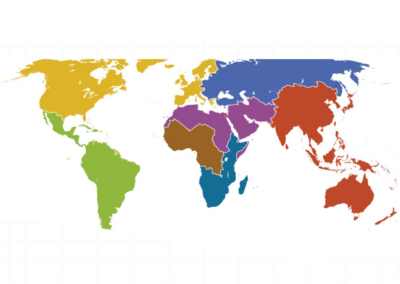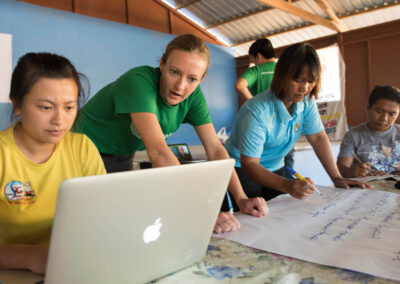Tripartite and UNEP support OHHLEP’s definition of “One Health”
Source: WHO
The Food and Agriculture Organization of the United Nations (FAO), the World Organisation for Animal Health (OIE), the United Nations Environment Programme (UNEP) and the World Health Organization (WHO) welcome the newly formed operational definition of One Health from their advisory panel, the One Health High Level Expert Panel (OHHLEP), whose members represent a broad range of disciplines in science and policy-related sectors relevant to One Health from around the world.
The four organizations are working together to mainstream One Health so that they are better prepared to prevent, predict, detect, and respond to global health threats and promote sustainable development.
The One Health definition developed by the OHHLEP states:
One Health is an integrated, unifying approach that aims to sustainably balance and optimize the health of people, animals and ecosystems. It recognizes the health of humans, domestic and wild animals, plants, and the wider environment (including ecosystems) are closely linked and inter-dependent. The approach mobilizes multiple sectors, disciplines and communities at varying levels of society to work together to foster well-being and tackle threats to health and ecosystems, while addressing the collective need for clean water, energy and air, safe and nutritious food, taking action on climate change, and contributing to sustainable development.
The importance of establishing a One Health definition was first raised by OHHLEP, and later agreed by the four Partners, to develop a common language and understanding around One Health.
The new comprehensive OHHLEP One Health definition aims to promote a clear understanding and translation across sectors and areas of expertise. While health, food, water, energy, and environment are all wider topics with sector-specific and specialist concerns, the collaboration across sectors and disciplines will contribute to protecting health, addressing health challenges such as the emergence of infectious diseases and antimicrobial resistance and promoting health and integrity of our ecosystems. Moreover, One Health, linking humans, animals and the environment, can help to address the full spectrum of disease control – from disease prevention to detection, preparedness, response, and management – and to improve and promote health and sustainability. The approach can be applied at community, subnational, national, regional, and global levels, and relies on shared and effective governance, communication, collaboration and coordination. With the One Health approach in place, it will be easier for people to better understand the co-benefits, risks, trade-offs and opportunities to advance equitable and holistic solutions.
Through combined energies of the four organizations, a comprehensive Global Plan of Action for One Health is in development, supported and advised by OHHLEP. This Plan aims to mainstream and operationalize One Health at global, regional, and national levels; support countries in establishing and achieving national targets and priorities for interventions; mobilize investment; promote a whole of society approach and enable collaboration, learning and exchange across regions, countries, and sectors.
As we acknowledge the importance of the One Health approach and welcome the OHHLEP One Health definition, the Tripartite and UNEP will continue to coordinate and implement One Health activities in line with the spirit of the new OHHLEP definition of One Health.
https://www.who.int/news/item/01-12-2021-tripartite-and-unep-support-ohhlep-s-definition-of-one-health




